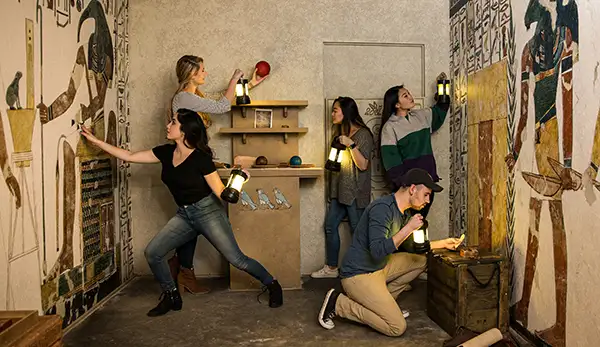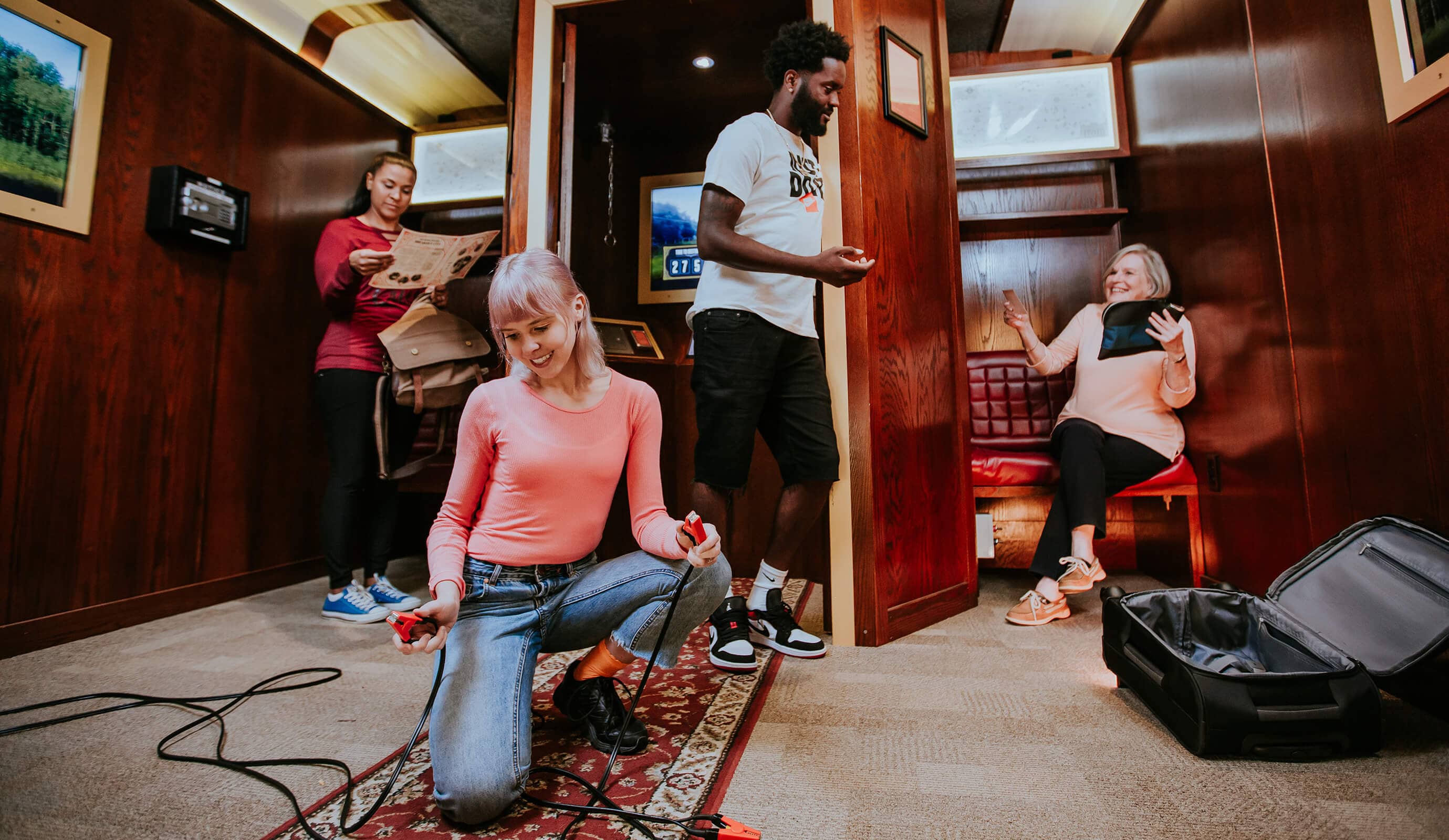Team Strategies: How to Collaborate Successfully in a Getaway Space
Navigating the complexities of a retreat area requires greater than plain enthusiasm; it requires a well-coordinated approach based in clear communication, tactical role projects, and experienced time administration. Teams must proactively pay attention to every member's insights, appoint functions that align with specific strengths, and keep routine check-ins to guarantee focus and stop redundancy. By fostering a setting that values cohesion and versatility, teams can significantly enhance their effectiveness and success rates. The subtleties of these techniques can change the experience, however just how precisely can they be applied to optimize the capacity for success?
Establish Clear Interaction
To facilitate clear communication, it is vital to mark a central factor of call for information dissemination. Short, concentrated updates from each team participant can maintain the group educated without frustrating them with information.

Designate Roles Strategically
While clear interaction sets the structure for reliable synergy, designating duties tactically makes sure that each staff member's staminas are utilized properly. In a getaway room circumstance, the time-sensitive and complicated nature of difficulties demands an efficient approach to job delegation. By recognizing and leveraging specific competencies, teams can maximize their problem-solving abilities and enhance total performance.
Someone with a keen eye for information might stand out in discovering concealed objects, while a sensible thinker can be much better matched to addressing puzzles. This role typically needs strong organizational and interpersonal skills.
Second, ensure that functions are versatile and adaptable. As new challenges arise, the group has to have the ability to pivot, reapportioning jobs as called for. This flexibility aids keep momentum and prevents bottlenecks that can take place due to inflexible function tasks.
Ultimately, a strategic approach to duty task not only makes best use of the toughness of each group member however likewise promotes a cohesive setting, driving the group towards an effective getaway.
Utilize Diverse Abilities
Identifying and utilizing the diverse skills within your group can considerably boost your efficiency in a retreat space. Each group member brings unique staminas to the table, and successfully leveraging these abilities can speed up problem-solving and improve total performance. A group participant with solid logical skills might excel at figuring out complicated codes or patterns, while an additional with keen empirical abilities may swiftly detect concealed ideas that others might neglect.
Reliable interaction is vital to making use of these diverse skills. Urge employee to voice their understandings and ideas without delay, guaranteeing that all prospective solutions are taken into consideration. This comprehensive approach fosters a dynamic atmosphere where creativity and crucial reasoning can prosper. Furthermore, appointing jobs that line up with each member's toughness can protect against traffic jams and ensure that progress is continual.
Furthermore, diversity in abilities typically converts to diversity in thinking styles, which is indispensable in a getaway room setup. While linked here some challenges might need logical thinking and precision, others may gain from creative and side thinking. By acknowledging and leveraging this diversity, groups can attend to a broader variety of challenges better, thus increasing their possibilities of an effective getaway.
Manage Time Efficiently

First, allot first mins for a quick survey of the space. Determine visible challenges and separate tasks based on employee' strengths, guaranteeing that no one is idle. Establish inner time checkpoints to evaluate progress occasionally; for example, goal to have half the problems addressed by the mid-point of the game. This practice can help maintain the group focused and protect against time from escaping unnoticed.
Furthermore, prevent tunnel vision. If a problem is taking too long, turn employee or carry on to another obstacle, returning later on with fresh point of views. Communication is extremely important-- keep everyone updated on fixed hop over to these guys problems and staying jobs to avoid redundant efforts.
Last but not least, utilize any type of hints or hints moderately however tactically - best escape room. Recognizing when to ask for aid can conserve useful time. By adhering to these time administration concepts, teams can dramatically boost their chances of an effective and enjoyable getaway space experience
Debrief and Reflect
Reflection is an important element of group advancement and improvement in the context of getaway areas. Once the difficulty is completed, whether efficiently or otherwise, it is essential for the group try here to involve in a structured debriefing session. This procedure permits group members to assess their efficiency, recognize toughness, and pinpoint areas for improvement.
Start the debrief by discussing what went well. Highlight particular instances of effective interaction, analytic, and collaboration. Recognizing these positive behaviors strengthens them and urges their rep in future challenges.
Talk about moments of complication, miscommunication, or ineffective techniques. Encourage an open and constructive discussion where group participants can share their point of views without concern of criticism.
Conclusion
To conclude, successful collaboration in an escape area is based upon clear communication, critical function projects, the effective application of varied skills, and skilled time management. Regular check-ins and organized debriefings are important for preserving focus and cultivating constant improvement. By developing a natural and adaptive team atmosphere, the possibility of effectively addressing challenges and achieving the purpose of leaving the area is significantly boosted. This method not just makes sure success yet also promotes collective growth and learning.